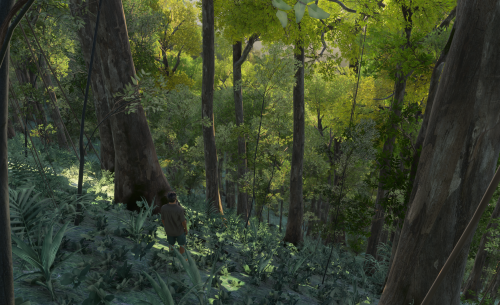
Microsoft’s Bold Transformation in 2024: A New Era Unfolds
The anticipations for this year suggested a shortage of high-quality releases, yet they were largely surpassed – however, it is undoubtedly the transformation of Xbox that will likely be the enduring legacy of 2024.
At the beginning of 2024, the most commonly voiced anxiety regarding this year in the gaming market was that it would present a remarkably minimal and disappointing release schedule, especially in comparison to the impressive peaks of 2023. This concern stemmed somewhat from the pandemic aftermath: a backlog of postponed titles made their way to the market throughout 2023, resulting in many prominent studios still being in the initial stages of new projects. Therefore, the lineup for 2024 did not appear particularly enticing.
With the benefit of hindsight, that apprehension did not entirely materialize; at least, despite the shaky prospects for 2024, what we experienced turned out to be distributed quite unevenly across various segments of the market.
Worries of a barren 2024 overall, then, did not come to fruition – at least not for everyone.
From a consumer standpoint, it has indeed been a fairly solid year for video games in the end. It might ultimately be seen as the calm before the storm of 2025’s GTA 6, but this year has held up remarkably well thanks to a combination of surprise hits that nobody truly anticipated – Helldivers 2 and Astro Bot are particularly noteworthy, having salvaged Sony from what could have been an exceptionally stark year during its console cycle – and especially in the latter half of the year, some games that genuinely exceeded expectations.
In terms of expectations being overturned, several games surfaced that had previously been dismissed as development disasters, yet ended up being genuinely impressive. Dragon Age: The Veilguard stands out as a prime example; on a personal level, I find its gameplay a bit too far removed from the earlier entries in the series for my liking, but assessed on its own, it merits recognition as a highly enjoyable game, far exceeding what many of us had dared to hope for after such a lengthy wait.
Silent Hill 2 is a remake I do not think many anticipated to turn out as effectively as it has, despite its developer’s established reputation in the horror genre. The genuinely astonishing surprise of the year, however, is Indiana Jones and the Great Circle – a title that feels remarkably delightful and fun in ways that were unexpected.
Concerns about an unproductive year overall did not materialize – at least not for everyone. For some publishers, the dread of 2024 being a squandered year was well-founded, with various companies struggling to find a successful title from one end of the year to the other.
The unfortunate case of Ubisoft stands out as a reluctant representative of this unfortunate group; it had certainly hoped that the relatively quiet release schedules of other major publishers would provide Star Wars Outlaws and Assassin’s Creed Shadows a chance to shine, but the former flopped (arguably a victim of Disney’s mismanagement of the Star Wars brand as much as any issues with Ubisoft itself), while the latter has been postponed to 2025. Ubisoft is not the only publisher that has struggled to find success in 2024, but its ongoing battle to rejuvenate and reinvigorate its business is likely to become a tale that lingers well into next year.
It wasn’t only specific publishers having a tough 2024, however; the year’s successes were distributed somewhat inconsistently across video game genres as well. I wrote last week about the disastrous year faced by live service games, with high-profile failures ranging from Sony’s Concord disaster to announcements that titles like Suicide Squad and XDefiant might be shutting down. Helldivers 2 and Marvel Rivals were the only real bright spots in that sector, although it’s worth mentioning that established games like Fortnite have continued to thrive even as the live service model faces significant challenges elsewhere (and even the beleaguered Overwatch 2 seems to have experienced a minor revival this year).
On the other hand, it was a superb year for single-player action games, marked by the likes of Black Fantasy Wukong, Stellar Blade, and Final Fantasy VII Rebirth, among many others. Coincidentally, it is also no coincidence that two of the standout titles noted here – Marvel Rivals and Black Fantasy Wukong – hail from Chinese developers; after numerous misstarts and considerable investment, this year truly marks the point where China began to assert itself as one of the leading global centers for game development. For all this, however, I suspect that when we look back at 2024 through a future lens, the primary story will revolve around Microsoft’s actions this year.
[Acquiring Activision Blizzard] was always part of a significant commercial transformation in progress, and the current identity of Xbox as a platform was continuously under scrutiny.
It has been an extraordinarily crucial year for Microsoft’s approach as a game publisher and platform holder, embarking on one of the boldest and arguably most challenging transitions in the history of this industry. It is a transition
